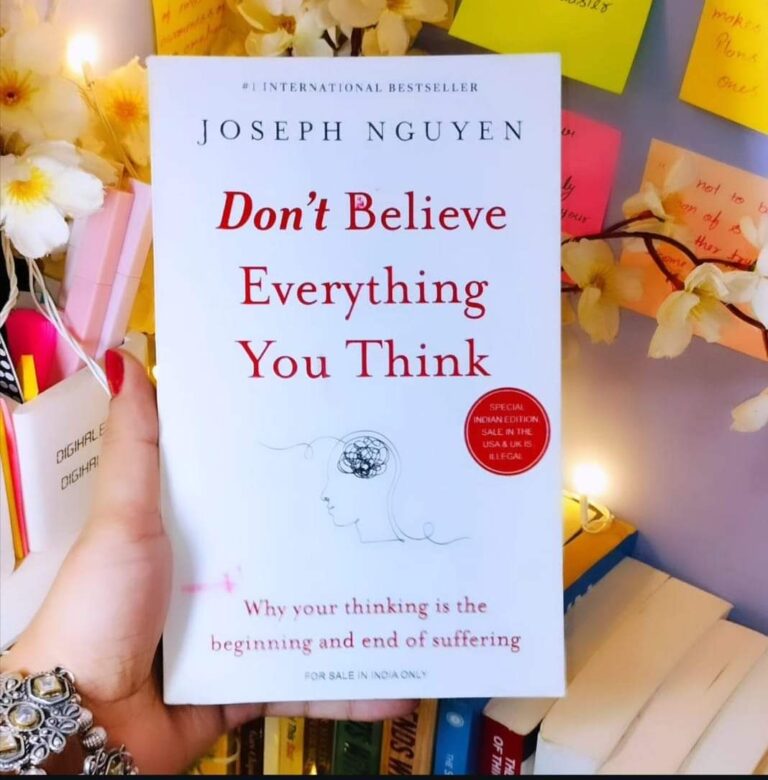“Don’t Believe Everything You Think”: A Guide to Critical Thinking
Introduction
The phrase “Don’t Believe Everything You Think” serves as a powerful reminder of the importance of questioning our thoughts and beliefs. It highlights the idea that our perceptions can be distorted by emotions, biases, and external influences. By cultivating critical thinking skills, we can develop a healthier mindset and make more informed decisions.
Key Themes
- Understanding Cognitive Distortions Our minds often engage in cognitive distortions—irrational thought patterns that can lead to negative emotions and beliefs. Examples include:
- All-or-Nothing Thinking: Viewing situations in black-and-white terms.
- Overgeneralization: Making broad conclusions based on a single event.
- Catastrophizing: Expecting the worst-case scenario in any situation. Recognizing these patterns helps us challenge and reframe our thoughts.
- Questioning Assumptions Many of our thoughts are based on assumptions that may not be accurate. It’s crucial to examine the evidence supporting these beliefs. Ask questions like:
- What proof do I have for this thought?
- Is there another perspective I haven’t considered?
- How would I advise a friend in this situation?
- Emotional Influence Emotions can heavily influence our thoughts. When we feel stressed, anxious, or upset, our thinking can become clouded. Practicing mindfulness and emotional regulation can help us create distance between our feelings and our thoughts, allowing for clearer reasoning.
- The Role of Perspective Our individual experiences shape our thoughts. Understanding that others may have different viewpoints can encourage empathy and open-mindedness. Engaging in conversations with diverse perspectives can enrich our understanding and challenge our assumptions.
- Building Critical Thinking Skills Developing critical thinking involves:
- Analyzing Information: Assessing sources for credibility and relevance.
- Evaluating Arguments: Considering the logic and reasoning behind beliefs.
- Reflecting on Thought Processes: Regularly reviewing and questioning our thought patterns.
- Cultivating a Growth Mindset Embracing the idea that our thoughts and beliefs can evolve fosters a growth mindset. Recognizing that learning and change are possible encourages us to remain open to new ideas and experiences.
Conclusion
“Don’t Believe Everything You Think” is a valuable mantra for fostering critical thinking and emotional resilience. By questioning our thoughts, recognizing cognitive distortions, and embracing diverse perspectives, we can cultivate a more balanced and informed worldview. This approach not only enhances personal well-being but also improves our interactions with others, leading to richer, more meaningful connections.
